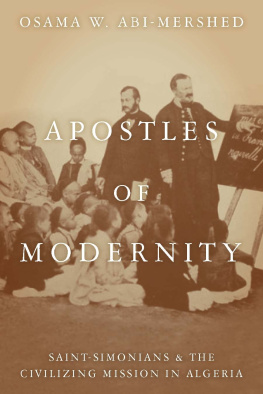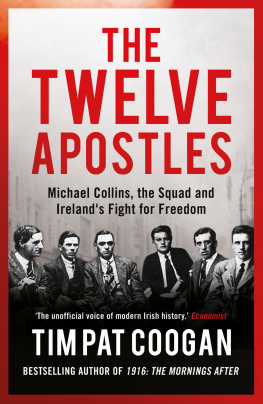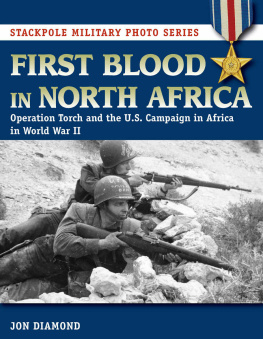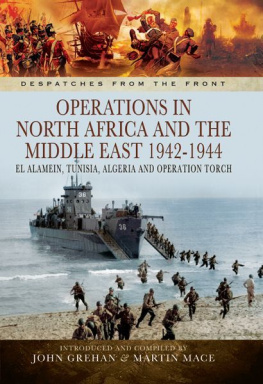FDRS 12
APOSTLES
Copyright 2006 by Hal Vaughan
ALL RIGHTS RESERVED. No part of this book may be reproduced or transmitted in any form by any means, electronic or mechanical, including photocopying and recording, or by any information storage and retrieval system, except as may be expressly permitted in writing from the publisher. Requests for permission should be addressed to The Lyons Press, Attn: Rights and Permissions Department, P.O. Box 480, Guilford, CT 06437.
The Lyons Press is an imprint of The Globe Pequot Press.
10 9 8 7 6 5 4 3 2 1
Printed in the United States of America
Library of Congress CataloginginPublication Data
Vaughan, Hal, 1928
FDRs twelve apostles : the spies who paved the way for the invasion of North Africa / Hal Vaughan.
p. cm.
Includes bibliographical references and index.
ISBN-13: 978-1-59228-916-5
ISBN-10: 1-59228-916-9
1. World War, 19391945Secret serviceUnited States. 2. World War, 19391945CampaignsAfrica, North. 3. Roosevelt, Franklin D. (Franklin Delano), 18821945. I. Title. II. Title: Frankline Delano Roosevelts twelve apostles.
D810.S7V28 2006
940.54'8673dc22
2006022143
Once again for Phuong...
PREFACE AND ACKNOWLEDGMENTS
THIS IS THE INTIMATE, SECRET, and first-time-told true story of how Robert Daniel Murphy and a handful of dedicated menAmericas first World War II spiesprepared the invasion of North Africa.
The tale came to me on a sunny autumns day in 1998 as I strolled along the left bank of the Seine River past a bookseller along the Quai Malaquais. I couldnt resist the piles of old French books in their wood bins; my fingers plucked out a book here and thereand then my eye fell on a red and cheaply bound volume. Thumbing through its pages, I came across a name: Ridgeway [sic] Knight. I knew that name...
I paused. My God, I thought: Ridgway Brewster Knight was my chief in Karachi! The pages that followed told a fictionalized tale of OSS operations in North Africa.1
Over the years Ridgway (now deceased) and I had stayed in touch. I followed his career as he graduated to senior posts as a U.S. diplomat and as U.S. ambassador to Belgium. I was between books and he was delighted to talk about his North African adventures. Eventually he gave me a two-volume memoir of his life in North Africa and during World War II, when he served on the staff of General Mark Clark. We would meet at the American Club of Paris and at his home in Pas-de-Calais, where, over endless bottles of very good French wine (Ridgway was an expert on French and Italian wines), and often in the company of his charming wife, Christine, Ridgway took me back to the days before Pearl Harbor, when Robert Murphy set his men to work in Algeria, Morocco, and Tunisia. He confided in me details of Bob Murphys life in Algiers and how Murphy and his team helped plan Operation Torchthe U.S. invasion of North Africa, and the only time the United States had a shooting war with France.
Ridgway was a scholar and a student of American diplomacy in World War II. He was critical of how President Roosevelt manipulated U.S. diplomacy from the White House. And he told me what he knew about the assassination of Admiral Jean-Louis-Xavier-Franois Darlan, who, as the U.S. pro-consul in North Africa, got French forces to join the Allies and fight against German and Italian armies in Tunisiaa prelude to the invasion of Italy and Normandy.
The behind-the-scenes drama of how America prepared Torch and barely avoided disaster captivated me. Over many months I assembled the personal memoirs, reminiscences, and photographs of the men who served with Robert Murphy and Ridgway Knight in Algeria, Morocco, and Tunisia. Murphys familyand relatives of former vice-consuls and OSS agents in North Africagenerously offered their help. I dug in the files of the National Archives at College Park, Maryland; the personnel archives of the U.S. Department of State; the Hoover Institution at Stanford, California; the French National Archives in Paris; the Italian National Archives in Rome; the Public Records Office in London; and the Franklin D. Roosevelt Library at Hyde Park, New York. And I was privileged to interview and correspond with four eyewitnesses to the events surrounding the Torch operation. The story that emerges lends conviction to the aphorism: Truth is stranger than fiction.2
I am grateful for the assistance of one of the leading historians of the period, Mr. Arthur Layton Funk, author of The Politics of Torch (University of Kansas, 1974), who corresponded with me and kindly gave me his handwritten notes: Intelligence in North Africa, Oct. 1941Oct. 1942.
I want to thank all those who contributed to helping uncover this story.
To my dear friend, Charles L. Robertson, professor emeritus of Smith College, ever-present when I needed to talk: mes homages. Phyllis Michaux, a former OSS operative now living in Paris, helped me find documents about the Princess de Ligne, a close friend of Robert Murphy, as did M. Ludovic de Polignac and la Princess Jean-Charles de Ligne. And to Maurice Bood: Chapeau for your good work.
Many thanks to Pamela Zimmerman, my energetic and efficient mining partner, research assistant, and copyeditor in New York and to her husband, Gerry Cohen, who brought to me Anthony Edens musings about Darlans assassination. The generous help of Mr. John Taylor of NARA has advanced Pams research. I am grateful to Rosemary Murphy for her help, and a particular merci goes to her sister, Mildred M. Pond, Robert Murphys youngest daughter, for corresponding with me and sharing family photographs and documents about the Murphy family prior to 1942. Christiane Guerlain, of the Lesieur family, and a dear friend and colleague at the American Hospital of Paris, helped with details of her life in Algiers between 19411942, and events surrounding Robert Murphys life and work there.
Rob Kirkpatrick, PhD, senior editor at The Lyons Press of Guilford, Connecticut, had a good grasp of the Torch story and a sharp pencil. His suggestions and comments were invaluable; and many thanks to his editorial and marketing team.
I am duly grateful to the following who shared with me family documents, photographs, anecdotes, and insights into the life and work of four of the important actors in the North African saga: Peter M. F. Sichel and Jacques Ttrault about Franklin O. Canfield; A. Derek Knox about his mother, Daphne Joan Fry Tuyl Knox and stepfather, John C. Knox; Donna Reid, PhD, about W. Stafford Reid; Maurice Hendrik Bood for his work in tracking down documents about General Weygand; and Mrs. Edith Kunhardt, daughter of vice-consul Harry A. Woodruff, deserves a special thanks for her last-minute interventions and a telephone interview with the author.
Finally, and with great admiration and thanks, I salute my agent, Edward W. Knappman, of New England Publishing Associates, for his generous and valuable help over many years; and thanks too, to his wife and partner, Elisabeth Knappman, a gracious hostess and thoughtful literati.
To the many others who helped along the way, including Leslie Presson, who held down the Westport fort, and Dr. Nadia Volf and Karen Kyker and Dave, who kept my body and mechanical brain workinga thousand thanks. I am solely responsible for any errors of fact.
PROLOGUE: HOW A HANDFUL OF MEN MADE A DIFFERENCE
THREE DAYS AFTER AMERICAN and British forces landed on French North African shores, Winston Churchill celebrated Operation Torch, the first real victory for the Allies in World War II. He ventured: Now this is not the end. It is not even the beginning of the end. But it is perhaps the end of the beginning.3


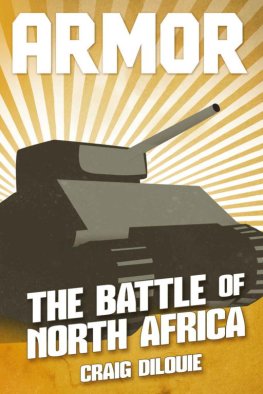
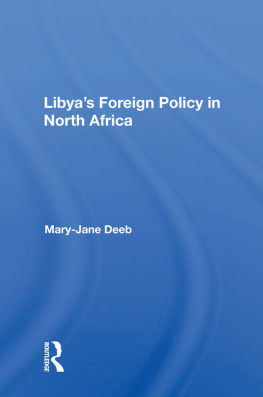
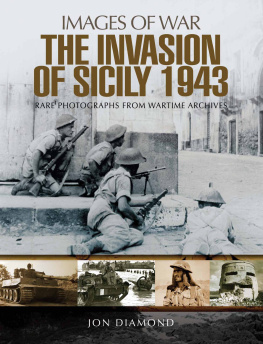
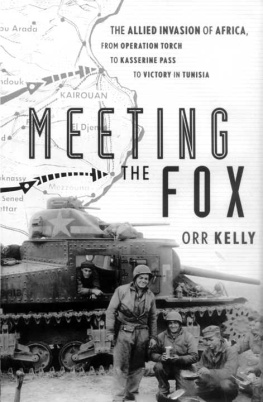
![Atkinson - An army at dawn: [the war in North Africa, 1942-1943]](/uploads/posts/book/178818/thumbs/atkinson-an-army-at-dawn-the-war-in-north.jpg)
